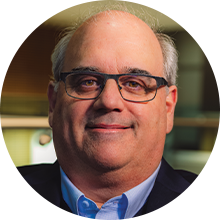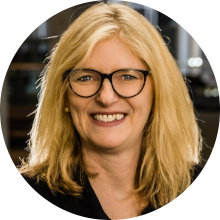Table of Contents
- AFM Advising & Co-op Contacts
- Specializations and CPA/CFA
- First Year
- In-Person Examinations (Midterms and Final Exams)
For questions about course selection and sequencing, course help, or average requirements, please refer to the Course Selection and Academic Requirements FAQ page.
For questions about the co-op program and your co-op sequence, please refer to the Co-op Academic/Work Sequence FAQ page.
For questions about technology requirements, please refer to the SAF Student Technology Requirements page.
AFM Advising and Co-op Contacts
Who are my academic advisors for Accounting and Financial Management (AFM)?
Darren Charters is the Program Director for the School of Accounting and Finance. Robert Kitchen, Connie Chong, Matthew Hargreaves, and Priti Nayak are the Academic Advisors for Undergraduate Studies. They work together to provide counselling to AFM students. The assistance may range from answering basic questions to hands-on assistance helping students deal with more challenging matters.

Darren Charters
Deputy Director, Student Experience
HH-3102
dcharters@uwaterloo.ca

Robert Kitchen
Team Lead, Academic Advising
HH-3157
safadvisor@uwaterloo.ca

Matthew Hargreaves
Undergraduate Academic Advisor
HH-3154
safadvisor@uwaterloo.ca

Roshni Verma
Undergraduate Academic Advisor
HH-3156
safadvisor@uwaterloo.ca
If I have a question about the program who do I contact?
Contact the SAF advisor inbox. The inbox is our students' best and direct link to the School of Accounting and Finance advising team.
If I have a question about the MAcc or Diploma program who do I contact?
The MAcc inbox is managed by both faculty and staff members in the SAF. If students have specific questions pertaining to graduate studies (including admissions requirements) it is best to speak to email the inbox directly.
If I have a question about co-op who do I contact?

Lynn Graham
Co-op and Experiential Learning Coordinator
Email: l2graham@uwaterloo.ca
519-888-4567 X47775
HH 3172
Specializations and CPA/CFA
What is CPA, CFA, or CBV?
These acronyms stand for Chartered Professional Accountant (CPA), Chartered Financial Analyst (CFA), and Chartered Business Valuator (CBV) designations, respectively. By joining AFM, students have an opportunity to fast-track their designations and prepare themselves for a career in the world of Accounting and Financial Management.
What courses must I complete to satisfy my CPA designation?
Students admitted in Fall 2019 and later will complete all of their required courses through the Professional Accountant Specialization. CPA core courses require a grade of 60% for CPA purposes, and non-core courses require a grade of 50% for CPA purposes. CPA core courses may be removed, added, or changed in collaboration with the CPA designation. Any future changes will be clearly indicated to students.
The full list of CPA core courses can be referred to below:
- AFM 273
- AFM 274
- AFM 291
- AFM 341
- AFM 362
- AFM 373
- AFM 382
- AFM 391
- AFM 433
- AFM 451
- AFM 462
- AFM 482
- AFM 491
What courses must I complete to satisfy my CFA designation?
Students admitted in Fall 2019 and later will complete all of their required courses through the Financial Markets Specialization. CFA courses do not require a specific grade.
If I am unable to meet the required grade for a CPA course, can I retake it?
If a student fails a CPA core course or receives a grade between 50-59 in a core CPA course, they may request to retake the course. Only AFM students are eligible to repeat a course in the Faculty of Arts due to professional requirements that differ from UW requirements, i.e. 50% vs. 60%. Only core courses can be repeated, and students seeking to retake a course must acknowledge the following:
- The new grade does not go in any averages (MAV, CAV, FAV, Term).
- The student does not receive an additional credit for the course.
- The student will still pay full tuition for this course unless it’s added as a 6th course. If this course is added as a fifth course, the student must take this course in place of an elective. They will need to make up the missing elective in a future term, likely on a work term.
What are specializations? Will they benefit my future career?
Career interest specializations are tools which AFM students apply to tailor their degree and concentrate their education on a specific portfolio within the wider field of Accounting and Financial management. Each of AFM's six specializations have been developed in close consultation with industry specialists. Specializations will provide a unique perspective into the industry, and we encourage all students to think carefully about how these specializations can complement their interests. Students must complete the requirements of one specialization as a BAFM degree requirement.
Specializations were developed with an eye to enhance AFM's undergraduate experience further. Previously, AFM had divided its students into three general pathways: CPA, CFM, and degree requirements. However, as the AFM program grew, so too did our interest to provide our students with a more sophisticated and dynamic education. Specializations represent our sincere desire to give our students more choice within AFM based on industry feedback regarding future professional skills and capabilities required for career success.
First Year
Do I need to take accounting courses in high school to perform well in this program?
The AFM/SFM program is designed with the assumption that students have not taken a high school accounting upon entry. High school coursework in accounting is not required for entry into SAF, nor is it a requirement for success in the AFM/SFM programs. Having said that, prior knowledge of accounting and finance is never a bad thing. Accounting curriculum in high school focuses on the system and language of financial accounting and often on the basic application of this knowledge. Students that do take a high school accounting course often feel more confident in their first year financial accounting course given their familiarity with the foundational subject matter but they do not have a long-term academic performance advantage. Any student (including those without high school accounting) comfortable with the general subject matter and willing to apply themselves can successfully complete AFM degree studies at a high level of academic performance.
Waterloo SAF students have access to LinkedIn Learning (login is required with students’ ID and credentials). There are free preparatory financial accounting courses within LinkedIn Learning that would serve as good preparatory coverage of accounting.
As a first-year student, am I responsible for enrolling myself in AFM courses?
All AFM students from 1A-2A are block enrolled by the SAF advisory team in their required core courses, and students should expect their first choice of an elective to only open in 2A or 2B. Students may elect to take ECON 102 in either the 2A or 2B term allowing the second year elective to be taken in either the 2A or 2B term.
From 2B-onwards, AFM students are expected to register for their own courses.
In-Person Examinations (Midterms and Final Exams)
What happens if I cannot write my final exam?
If a student misses an exam due to illness, they should contact their course instructor within 24 hours and see the Faculty of Arts Accommodations for Illness or Extenuating Circumstances page for direction on next steps, including submitting supporting documentation, like the Verification of Illness Form. Please note that the student should submit documentation within 48 hours of the exam. Please email your instructor or the SAF Undergraduate Advisors (safadvisor@uwaterloo.ca) if you have any questions.
How does this affect my final grade?
Students will receive an INC (incomplete) grade and be expected to write a deferred exam. The deferred is exam is most commonly written the next time the course is offered. Exceptions may be granted for a student on a coop term. If a student fails to write the deferred exam, they will receive the earned grade. 32% will be used for any necessary average calculations should the earned grade appearing on the transcript be lower.
What do I have to do to arrange for the deferred exam?
Note, the exam will be different from the original exam. If the original was held on campus, the deferred final exam would be held on campus. It may happen that the course is being offered by a different instructor, and the exam will be based on the teaching of the new instructor.
Students should reach out to safadvisor@uwaterloo.ca at the beginning of the term to enquire about writing the deferred exam. Arrangements will be made for the student to have access to the course Learn site.
Students must indicate their intent to write the exam and clear the INC grade, so that a personalized, deferred exam will be available in the exam room. The student will be added to Odyssey for assigned seating.